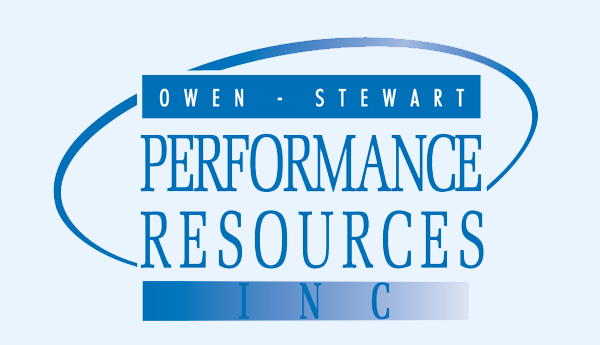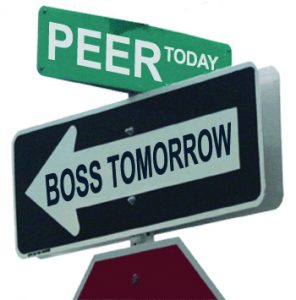Peer Today, Boss Tomorrow: Navigating Your Changing Role
This program uses real world behavior modeling to show new managers how to do the right thing, in the right way, at the right time.
- DVD or USB
- Facilitator Guide
- Reproducible Participant Materials
- PowerPoint Presentation
- What it means to accept the responsibilities of their new role.
- How to exercise their abilities to set clear boundaries.
- The value of strengthening their communication skills.
- The importance of taking thoughtful and strategic action.
$1,095.00
This program uses real world behavior modeling to show new managers how to do the right thing, in the right way, at the right time.
Making the leap from peer to boss is never easy. In addition to dramatic change, new managers frequently struggle to balance their old coworker relationships with their new management responsibilities.
Designed to help participants make a successful transition from “coworker” to “manager” or “supervisor,” Peer Today, Boss Tomorrow presents four proven strategies that will help new supervisors navigate changing relationships and prepare for the most difficult situations they’re likely to encounter as they assume their new role.
Through the four strategies presented and applied in this program, participants will have the opportunity to learn:
- What it means to accept the responsibilities of their new role.
- How to exercise their abilities to set clear boundaries.
- The value of strengthening their communication skills.
- The importance of taking thoughtful and strategic action.
Participants will learn how to address these common situations:
- Overcoming the fear of lost friendships and lost rapport
- Disciplining a former peer
- Managing coworkers who are older
- Enforcing a policy the individual may have personally broken prior to becoming a manager
- Avoiding the appearance of favoritism
- Keeping confidential information confidential
- Admitting mistakes in a way that builds trust and credibility with former peers (and all direct reports)


